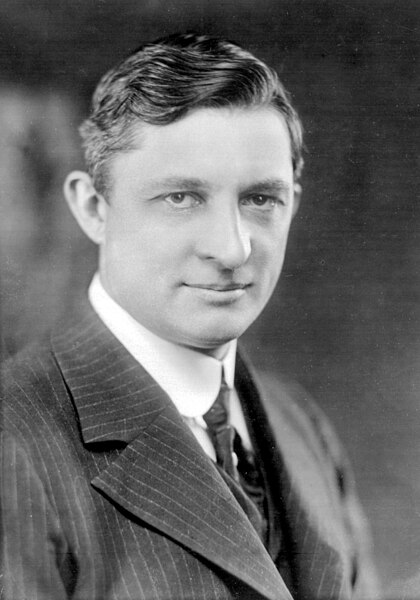Willis Haviland Carrier was an American engineer, best known for inventing modern air conditioning. Carrier invented the first electrical air conditioning unit in 1902. In 1915, he founded Carrier Corporation, a company specializing in the manufacture and distribution of heating, ventilation, and air conditioning (HVAC) systems.
Carrier in 1915
Engineers Hand-book, edited by Carrier while at the Buffalo Forge Co. in 1914
Air conditioning, often abbreviated as A/C (US) or air con (UK), is the process of removing heat from an enclosed space to achieve a more comfortable interior environment and in some cases also strictly controlling the humidity of internal air. Air conditioning can be achieved using a mechanical 'air conditioner' or by other methods, including passive cooling and ventilative cooling. Air conditioning is a member of a family of systems and techniques that provide heating, ventilation, and air conditioning (HVAC). Heat pumps are similar in many ways to air conditioners, but use a reversing valve to allow them both to heat and to cool an enclosed space.
An array of air conditioner condenser units outside a commercial office building
Willis Carrier, who is credited with building the first modern electrical air conditioning unit
A wireless remote controller
The infrared transmitting LED on the remote





